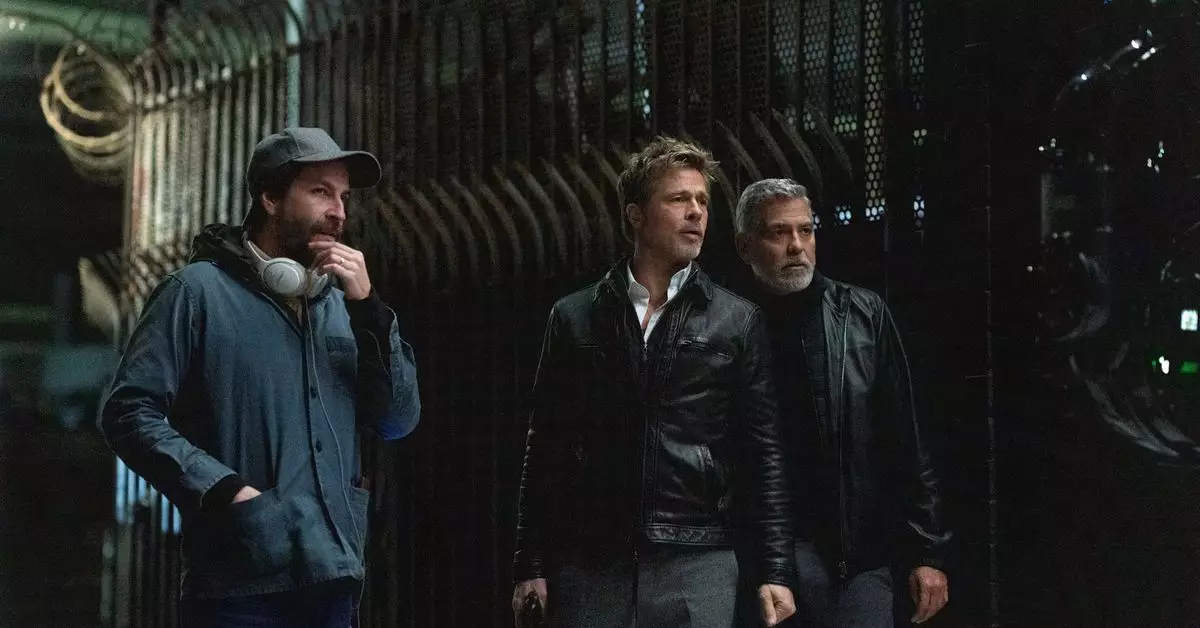In the ever-evolving landscape of film production, the dynamics between creative visionaries and production companies are often fraught with challenges. A recent announcement from director Jon Watts regarding his departure from the sequel to the film *Wolfs* illustrates this tension vividly. Set against the backdrop of fluctuating industry standards for film releases and the shifting priorities of major streamers like Apple, Watts’ experience raises critical questions about the integrity of artistic collaboration and the expectations placed upon filmmakers in a streaming-dominated era.
Jon Watts, known for his adept storytelling and direction, expressed profound disappointment after Apple, the studio behind *Wolfs*, abruptly altered its distribution plans. Initially, the film was slated for a broad theatrical release, a move that promised not only commercial viability but also a recognition of the film’s artistic merit. As reported by various outlets, Apple pivoted its strategy, causing Watts to feel betrayed and losing confidence in its commitment as a creative ally. The director’s public statement revealed that he had not just withdrawn from the sequel out of dissatisfaction; rather, it was coupled with a sentiment of disillusionment that reflected a deeper concern for the integrity of the art form as it increasingly falls under the grip of corporate pressures and profit motivations.
The critical moment came when Apple announced the official green lighting of the *Wolfs* sequel without considering Watts’ request to keep the project under wraps. This oversight seemingly served as an attempt by Apple to cast a positive light on their streaming-centric model, further jeopardizing the fragile trust between the creative minds and the corporate machine. Such actions indicate a growing trend where titles are not merely films but rather marketing tools in the larger brand strategies of streaming services.
The core issue is not isolated to Watts; instead, it reflects a systemic problem faced by directors amidst the growing dominance of streaming platforms like Apple TV Plus. In August, The New York Times conveyed concerns about Apple’s financial reservations after a string of high-profile failures at the box office, prompting them to reconsider their theatrical strategies. The decision to limit wide releases may have been a pragmatic move from a business standpoint, yet it poses significant risks for filmmakers who thrive on audience exposure and artistic validation that theatrical runs typically provide.
Furthermore, the contrast between different projects under the Apple banner illustrates this dilemma. For instance, Doug Liman’s *The Instigators* enjoyed commercial success under a limited-release model, enticing new subscribers while also representing a more conventional approach to streaming releases. This dichotomy creates an environment where filmmakers may feel compelled to compromise their visions for the sake of conforming to the company’s shifting priorities.
As the conversation around creative freedom in the age of streaming continues, it’s essential to consider the long-term repercussions of these industry practices. Directors like Steve McQueen have articulated their own frustrations, emphasizing that while the limited releases may be strategically sound, they diminish the opportunity for meaningful audience engagement. Directors are left in a precarious position where the risk of losing their creative autonomy looms large.
Watts’ decision to walk away from the *Wolfs* sequel underscores a growing sentiment among filmmakers: the need for a respectful partnership built on trust. As production companies navigate the intricacies of a crowded marketplace and adapt to streaming’s dominance, they must also ensure that their creative collaborators feel valued and supported. Striking a balance between corporate interests and artistic integrity is crucial if production companies wish to foster enduring relationships with the very talents that bring their projects to life.
Jon Watts’ departure from *Wolfs* is more than just a single filmmaker stepping back; it represents a bellwether moment indicating the tensions that define contemporary filmmaking in a streaming age. The industry must grapple with its role as a creative partner, prioritizing the preservation of artistic trust in an era dominated by rapid financial assessments and shifting release strategies.

